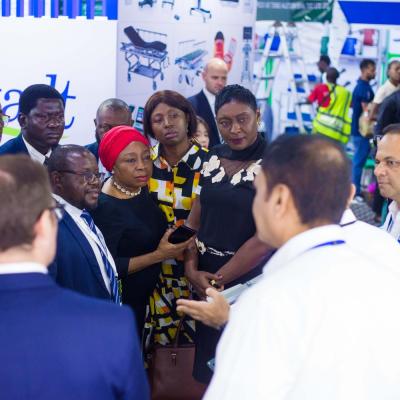Frontpage News (3259)
Healthcare providers urge government to increase budget for positive outcomes
 Healthcare providers and technology experts have urged the government to inject more funds into the health sector to achieve positive outcomes in the country.
Healthcare providers and technology experts have urged the government to inject more funds into the health sector to achieve positive outcomes in the country.
They said access to financing has remained a major burden in the achievement of the Universal Health Coverage (UHC) in Nigeria, which enables all citizens to access healthcare across all levels.
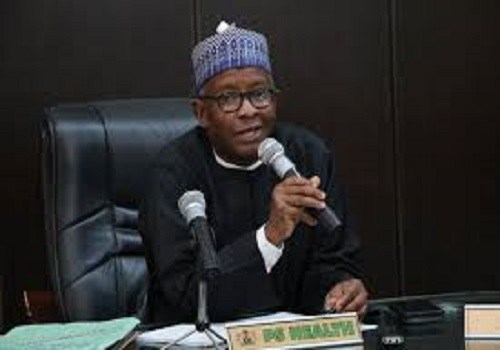 The new Permanent Secretary, Federal Ministry of Health, Abdullahi Mashi, has assumed duty. Mashi, who addressed directors and management staff of the ministry on his resumption in Abuja earlier in the week, emphasised the need to improve on service delivery at hospitals, particularly, the Accident and Emergency (A&E) departments, in order to address the current worrisome situation experienced by patients across the country.
The new Permanent Secretary, Federal Ministry of Health, Abdullahi Mashi, has assumed duty. Mashi, who addressed directors and management staff of the ministry on his resumption in Abuja earlier in the week, emphasised the need to improve on service delivery at hospitals, particularly, the Accident and Emergency (A&E) departments, in order to address the current worrisome situation experienced by patients across the country.Nigeria’s Dependence on Donors for Immunisation Vaccines Shameful — Tomori
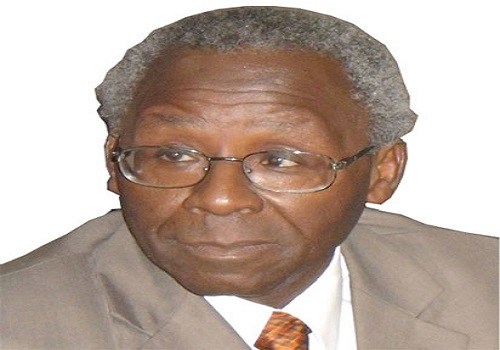 With report showing that vaccination eludes 75 percent of Nigerian children, a professor of virology, Prof Oyewale Tomori, has said that the country has no business depending on donor agencies in the provision of resources for children’s vaccination even as he stressed the need to increase the awareness of parents and caretakers for vaccination to ensure that every child receives the full complement of vaccine at the right time.“
With report showing that vaccination eludes 75 percent of Nigerian children, a professor of virology, Prof Oyewale Tomori, has said that the country has no business depending on donor agencies in the provision of resources for children’s vaccination even as he stressed the need to increase the awareness of parents and caretakers for vaccination to ensure that every child receives the full complement of vaccine at the right time.“ The National Agency for Food, Drug Administration and Control (NAFDAC) has raised the alarm over the continued violation of the International Code of Marketing of Breast-milk Substitutes (BMS) and national regulations by manufacturers of BMS products.
The National Agency for Food, Drug Administration and Control (NAFDAC) has raised the alarm over the continued violation of the International Code of Marketing of Breast-milk Substitutes (BMS) and national regulations by manufacturers of BMS products.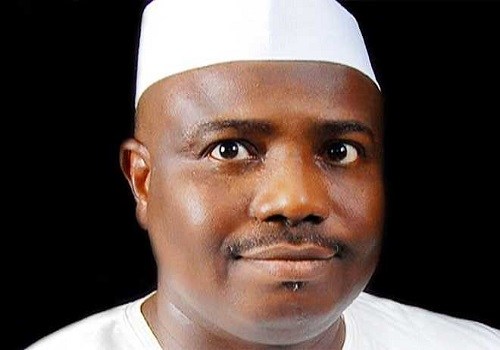 One hundred Sokoto students, offered scholarship by the state government to study Medicine and other medical-related courses in India, were yesterday warned against drug abuse
One hundred Sokoto students, offered scholarship by the state government to study Medicine and other medical-related courses in India, were yesterday warned against drug abuse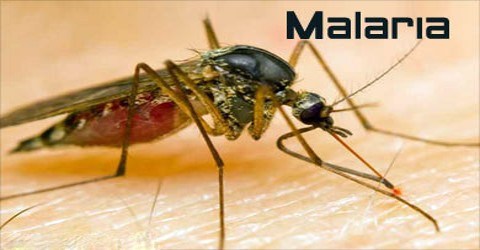 Researchers on Friday said that “radical cure” is the best treatment for a type of malaria affecting 13 million people. A team of international malaria experts, led by the Menzies School of Health Research in Darwin, published a study analyzing the treatment of Plasmodium vivax malaria.
Researchers on Friday said that “radical cure” is the best treatment for a type of malaria affecting 13 million people. A team of international malaria experts, led by the Menzies School of Health Research in Darwin, published a study analyzing the treatment of Plasmodium vivax malaria.
Plasmodium vivax is the most common cause of recurring malaria, affecting more than 13 million people every year with 40 percent of the world’s population at risk of infection.
 Determined to improve the health indices of Nigerians through universal health coverage, the Association of Community Pharmacists of Nigeria (ACPN) has called for a wide range of reforms in the new dispensation to offer much better and robust therapeutic outcomes for consumers of health in Nigeria.
Determined to improve the health indices of Nigerians through universal health coverage, the Association of Community Pharmacists of Nigeria (ACPN) has called for a wide range of reforms in the new dispensation to offer much better and robust therapeutic outcomes for consumers of health in Nigeria.
Newly elected National Chairman ACPN, Samuel Adekola, at his inauguration ceremony of in Benin City, Edo State, told journalists: “Specifically, we shall collaborate with stakeholders in health to institute a well-defined prescription policy for prescribers and dispensers in both the public and the private sector in tandem with the law.
 Worried that most disease may soon become untreated, countries including Nigeria are making significant steps in tackling antimicrobial resistance (AMR). But, according to a report released Tuesday by the Food and Agriculture Organization of the United Nations (FAO), World Organisation for Animal Health (OIE) and the World Health Organization (WHO), serious gaps remain and require urgent action.
Worried that most disease may soon become untreated, countries including Nigeria are making significant steps in tackling antimicrobial resistance (AMR). But, according to a report released Tuesday by the Food and Agriculture Organization of the United Nations (FAO), World Organisation for Animal Health (OIE) and the World Health Organization (WHO), serious gaps remain and require urgent action.
Meanwhile, the National Agency for Food and Drug Administration and Control (NAFDAC) has warned that the dangerous practice of sale and consumption of fruits artificially ripened with calcium carbide may be the major cause of rising cases of sleeping disorders, mouth ulcers, skin rashes, kidney problems and possibly even cancer.
 The National Agency for Food and Drug Administration and Control {NAFDAC) in partnership with Clinton Health Access Initiative (CHAI) have presented guidelines to strengthen the implementation and enforcement of the Mobile Authentication Service (MAS) Scheme by stakeholders in Nigeria.
The National Agency for Food and Drug Administration and Control {NAFDAC) in partnership with Clinton Health Access Initiative (CHAI) have presented guidelines to strengthen the implementation and enforcement of the Mobile Authentication Service (MAS) Scheme by stakeholders in Nigeria.
The guidelines, presented on Wednesday at the NAFDAC’s Laboratory in Oshodi, followed the concerns of the House of Representatives towards ensuring that the MAS is reactivated and applied to all drugs purchased in the country as well as the mandate on its Committee on Health Services to ensure compliance with the resolutions and the commencement of the scheme’s nationwide campaign in order to curb the menace of fake and counterfeit drugs in Nigeria.
 The World Bank has earmarked the sum of $4m to strengthen health care service delivery in Kwara State. The Head of World Bank’s Health in Africa Initiative, Prof. Khama Rogo, disclosed this during the inauguration of the Kwara Health Insurance scheme in Ilorin, capital of the state on Wednesday.
The World Bank has earmarked the sum of $4m to strengthen health care service delivery in Kwara State. The Head of World Bank’s Health in Africa Initiative, Prof. Khama Rogo, disclosed this during the inauguration of the Kwara Health Insurance scheme in Ilorin, capital of the state on Wednesday.
Rogo, who is also the bank’s Lead Health Sector Specialist, stated that many African leaders had attempted to carry out the health insurance scheme in their respective countries without success.
More...
President Buhari Pledges Upward Review Of Budgetary Allocation To Health Sector
 President Muhammadu Buhari says the Federal Government is considering an upward review of budgetary allocation to the health sector to improve the quality and access to medical facilities across the country. Buhari made the pledge when he received the new executive of the Nigerian Medical Association (NMA) at the State House, Abuja on Thursday. According to him, the review will reflect the government’s priority of ensuring that Nigerians get better health care, especially in specialized areas.
President Muhammadu Buhari says the Federal Government is considering an upward review of budgetary allocation to the health sector to improve the quality and access to medical facilities across the country. Buhari made the pledge when he received the new executive of the Nigerian Medical Association (NMA) at the State House, Abuja on Thursday. According to him, the review will reflect the government’s priority of ensuring that Nigerians get better health care, especially in specialized areas.
“We place quality healthcare on our priority list, and we are already marching on with the Primary Health Care services and some state governors have bought into it. “We are committed to universal health care.’’
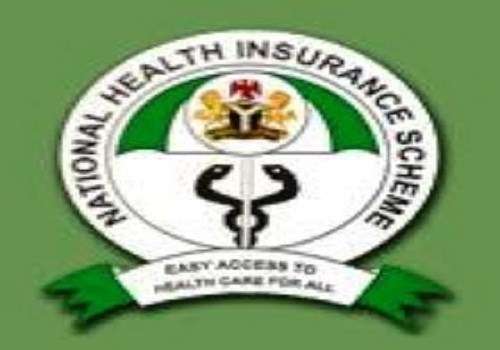 National Health Insurance Scheme on Tuesday urged health workers to treat patients with respect and dignity in order to ease access to healthcare.
National Health Insurance Scheme on Tuesday urged health workers to treat patients with respect and dignity in order to ease access to healthcare. The United Nations Children’s Funds (UNICEF), has tasked the Nigerian Government on effort towards the targets of 15 percent annual national budget allocation to the health sector. UNICEF Deputy Representative, Isiye Ndonbi, stated this at the 2nd Annual Legislative Summit on Universal Health Coverage (UHC) and Nutrition, themed: the role of lawmakers in the implementation of 1 percent consolidated revenue fund and preparation for the mandatory contribution of Nigerians to health insurance, held in Abuja.
The United Nations Children’s Funds (UNICEF), has tasked the Nigerian Government on effort towards the targets of 15 percent annual national budget allocation to the health sector. UNICEF Deputy Representative, Isiye Ndonbi, stated this at the 2nd Annual Legislative Summit on Universal Health Coverage (UHC) and Nutrition, themed: the role of lawmakers in the implementation of 1 percent consolidated revenue fund and preparation for the mandatory contribution of Nigerians to health insurance, held in Abuja.
 A man, Emmanuel Owolanke, has been arrested by the Hospital Services Department of the Ondo State Ministry of Health for illegally operating a hospital. Owolanke, who has his hospital at Uso town, in the Owo Local Government Area, was alleged to be parading himself as a medical doctor and was said to have been carrying out surgical operations on unsuspected patients.
A man, Emmanuel Owolanke, has been arrested by the Hospital Services Department of the Ondo State Ministry of Health for illegally operating a hospital. Owolanke, who has his hospital at Uso town, in the Owo Local Government Area, was alleged to be parading himself as a medical doctor and was said to have been carrying out surgical operations on unsuspected patients.

